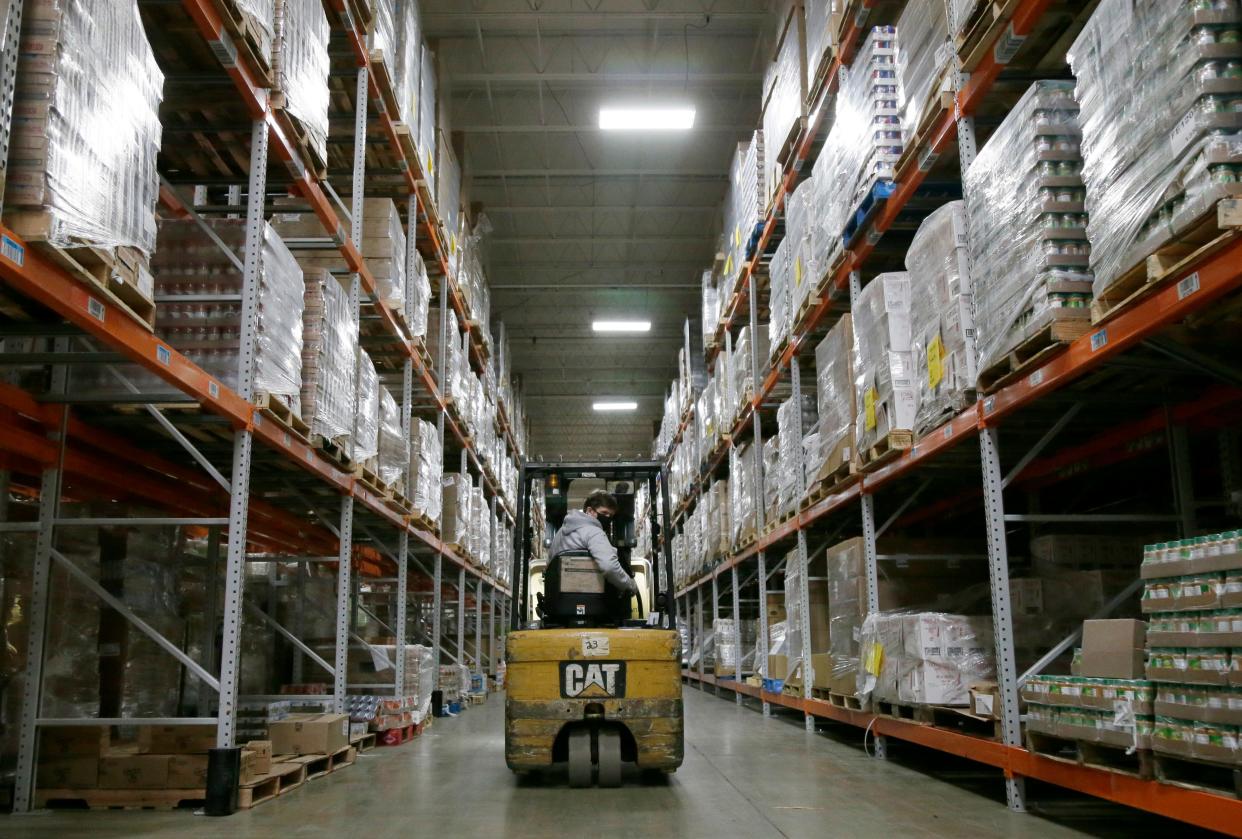Columbus nonprofits request their share of leftover $150M in COVID funds

Sharmarke Abdi came to Columbus' city hall Tuesday to tell council members about a Hilltop youth soccer program he works for as an assistant coach, with an aim to keep kids on the playing fields and out of gangs and trouble.
"Where I come from there is a lot of gun violence, and it's easy to get caught up doing the wrong thing," the 16-year-old told council members. "I wanted to live to see another day."
Abdi said he got involved with the Hilltop Tigers Soccer Club through his good friend, Issa, and met a lot of good people through the soccer program's sponsor, the nonprofit MY Project USA.
"It's saved my life," he said.
But one day last summer while playing soccer, gang members showed up wanting to fight. He and his friend Issa said no and tried to walk away. Gunfire erupted and Issa, a rising soccer talent, was fatally shot at age 15.
"Sadly, Issa Jeylani is no longer with us today," Abdi said, trying to keep his composure. "On July 22, 2022, I lost my best friend. ... He was a good kid with a bright future."
Abdi was one of nearly 20 speakers at a council public hearing where groups advocated for a slice of federal funding from the city's remaining $150 million-plus in emergency COVID relief assistance, including a newly arrived windfall of $68 million in emergency rental assistance.
Even as COVID has eased, testimony made it clear that demand for food and housing assistance and other social services has remained high.
"There have been spikes in demand across many of the sub-sectors," Michael Corey, executive director of the Human Service Chamber of Franklin County, an advocacy group for area nonprofits, told The Dispatch last week. "...Quite frankly they have been more widespread and significant than I feared they would be."
Matt Habash, president and CEO of the Mid-Ohio Foodbank, told council members at a previous hearing on federal COVID funds last week that, even as the COVID emergency has been declared over, the food insecurity in central Ohio is getting worse.
"I've got bad news," Habash said. "The first three months of this year the demand for food is up 45% over last year. It's up even higher than it was at the height of the pandemic."
The massive federal infusion of cash — the city of Columbus alone got a total of more than half a billion dollars — masked underlying issues, officials said, and as those dollars expire it appears that the underlying economy hasn't recovered for many low-income residents.
"You saw the end of the stimulus checks, you saw the end of the child tax credit," Habash said. Just the end of the pandemic's enhanced emergency SNAP, or Supplemental Nutrition Assistance Program, program in late February means $12.5 million less aid coming to Franklin County, "disappearing for people who are already struggling.
"We're not an answer for that," Habash said of the Mid-Ohio Food Bank and other social agencies.
At Tuesday's meeting, 16 social service agencies made requests for continued funding from the $70.5 million remaining in American Rescue Plan dollars, the $68 million in federal Emergency Rental Assistance (part of which can go toward subsidizing new affordable housing), and the $16.4 million in HUD affordable housing and homelessness prevention dollars.
The Community Shelter Board, YWCA, Affordable Housing Alliance, Primary One Health, National Church Residences, and several others all said the needs facing their agencies remain strong.
The Hilltop soccer club, food provider and after-school program that Abdi coaches for are run by MY Project USA, which received funding through the city during the pandemic. The nonprofit is hoping to get additional dollars to keep their efforts going and to construct a new recreation center at its headquarters on Sullivant Avenue in the Hilltop, said founder Zerqa Abid, who was named a Dispatch Everyday Hero in 2019.
"With the program we have been able to save so many children," she said.
Prior reporting: Hilltop leader plans hunger strike if city, county don't act on violence, community funding
City Council and Mayor Andrew Ginther's office will now begin determining the next steps, facing varying deadlines to spend the different pots of money over the next few years, City Council President Shannon Hardin told The Dispatch after Tuesday's hearing. Decisions on making future allocations to individual programs will be made through the remainder of the year and possibly into next year, he said.
"We're going to have to be focused on what those dollars go toward now," Hardin said. "We have to think about sustainability," recognizing that such a large chunk of funding may never come the city's way again.
"So how do we make these last dollars stretch and have longer lasting impacts?" Hardin said, noting that the city needs to start looking ahead to what happens to these programs when the final federal emergency COVID dollar gets spent.
wbush@gannett.com
@ReporterBush
This article originally appeared on The Columbus Dispatch: Columbus hears requests for funds from its final $150M in COVID funds

